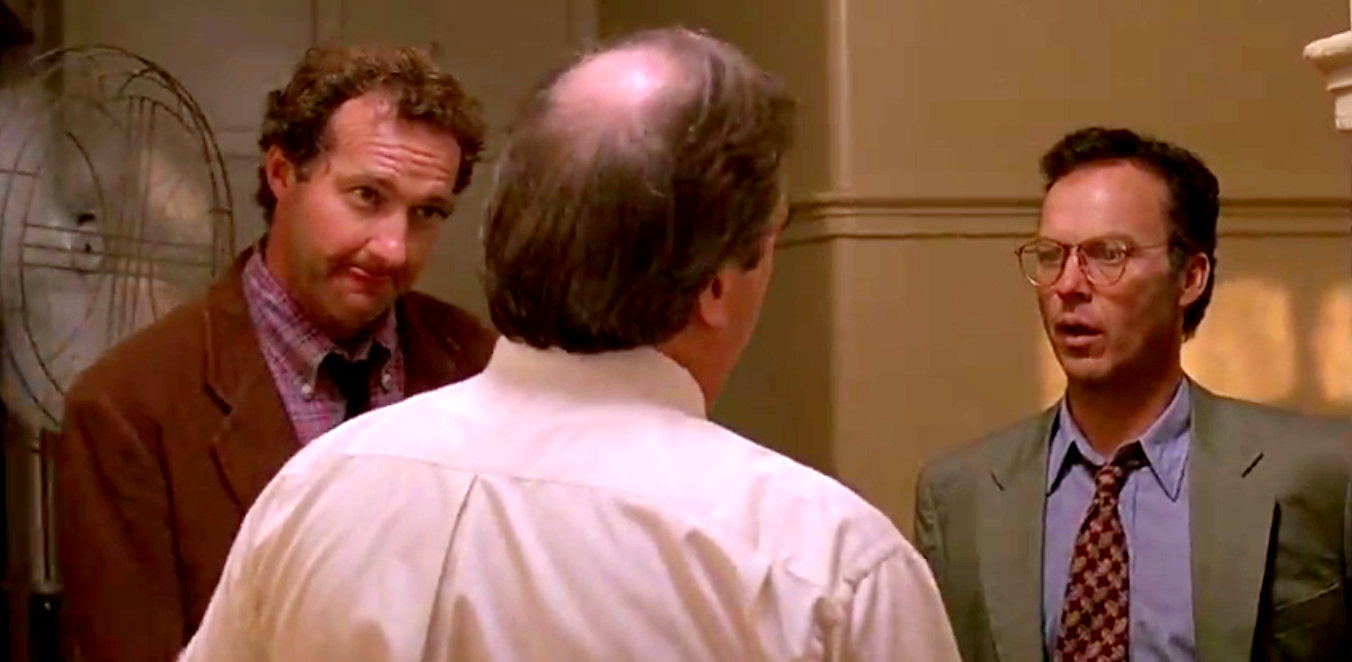If you gather and report news and would like a New Year’s resolution, consider this: Put your audience first by building trust. The how depends much on the type of journalism you practice: Advocacy, contextual. conversational, data, immersive, or process, but hopefully not mob, or a combination of them. You could seek the method in a book, like my Responsible Reporting: Field Guide for Bloggers, Journalists, and Other Online News Gatherers. But do you really want to take your work home and read? Movie marathon is better. Grab the popcorn and Bunch-a-Crunch.
Any—and ideally all—of these films are a great way to shake the ethical cage as 2015 starts. Wikipedia lists 188 entries in category “films about journalists“, and I choose just five that combined convey lessons about responsible and irresponsible news reporting. They are textbooks anyone writing news should study; presented alphabetically.
Absence of Malice
The film is a lesson about my favorite question: “Who benefits?” Sally Field plays Megan Carter, a Miami Standard reporter who exercises poor ethical judgment in every news story the movie presents. When given opportunity to look at the Fed’s file on Michael Gallagher, played by Paul Newman, she does so without question. A prosecutor takes a toilet break, leaving Carter alone in his office with the document plainly visible on the desk. Ah hum.
Gallagher is guilty of nothing other than being born into the wrong family. The Federal prosecutor’s investigation into a murder is stalled. Carter’s story shakes the tree, to see what falls out of Gallagher. She should have asked “Who benefits?” and “How?” before writing one word. She also should have sought out Gallagher for comment and done additional reporting on her own, rather than relying solely on the leaked file. Carter is a lazy reporter!
Her mistakes compound throughout this superbly-directed film (by Sydney Pollack). You can see for yourself. But I’ll add this (tiny spoiler): The editor who offers Carter a promotion should be canned for not firing her.
All the President’s Men
Alan J. Pakula directs this classic film about the Watergate scandal. Washington Post reporters Carl Bernstein, played by Dustin Hoffman, and Bob Woodward (Robert Redford) know they have a story, they just aren’t sure what it is. As they work the phones, knock on doors, and skulk around darkened parking garages, an unbelievable conspiracy unfolds. This is investigative journalism at its purest—and toughest, when criticism of the reporting is harsh about inconceivable events.
Released in 1976, All the President’s Men authentically captures the era, because Pakula made the movie a few years after the real events. The drama recalls the reporter’s life before cell phones and the Internet.
Shattered Glass
Stephen Glass is one of the New Republic‘s brightest stars. His knack for uncovering and reporting provocative articles—like the young Republicans’ boozer following a convention and the hacker kid wooed by a software company—are amazing. Too bad Glass fabricates stories. He should have taken up fiction writing instead. (I must sheepishly acknowledge that Glass’ work demonstrates the authority and immersive power of writing in present tense. If he can fabricate so convincingly, imagine what present tense can do for your real reporting.)
Like All the President’s Men, Shattered Glass recalls real events. Billy Ray directs the 2003 film set in the late 1990s.
Journalist Adam Penenberg, during the dawn of digital journalism, exposes Glass when trying to follow up story “Hack Heaven”. None of the sources—not even software company Jukt Micronics—exists.
Glass betrays the trust of his profession, editors, coworkers, and, most importantly, New Republic readers. No excuse can justify his actions. The one asset every reporter or writer has is trust, which is inviolate and absolute. Once lost, trust can never be recovered.
Stigma stings for a long time. In January 2014, the California Supreme Court rejected Glass’ bar application. He cannot practice law.
State of Play
Released in 2009, the political thriller, directed by Kevin Macdonald, is memorable for what it represents today—new and old media’s intersection and cultural clash.
Congressman Stephen Collins (Ben Affleck) has a problem. His mistress is mysteriously dead, crushed beneath a Washington, D.C. Metrorail carriage. Not to worry, buddy Cal McAffrey, played by Russell Crowe, leads the investigation for the Washington Globe. McAffrey’s boss compels him to work with political blogger Della Frye (Rachel McAdams), creating dramatic tension that at times is too contrived.
Among the five films, State of Play is the weakest, for the storytelling, but nevertheless conveys several important themes pertinent to news gatherers. Crowe’s character represents the old journalism, while McAdams portrays the new world order. Meanwhile, uncovering the story, while resisting the editor’s demands to publish, leads the reporters down a twisty path.
The Paper
Ron Howard brilliantly captures tabloid journalism in this 1994 comedy. The film follows New York Sun metro editor Henry Hackett (Michael Keaton) over 24 hours. The Paper is rich with relevant journalistic themes: Getting the quote (sourcing the story); publishing news relevant to the audience (New Yorkers); accurately reporting the story (despite the hardships); and writing compelling headlines (with art), among other notables.
While the synopsis is shortest, The Paper is my favorite among the five films.
Editor’s Note: Versions of this post appear on LinkedIn and Medium.
